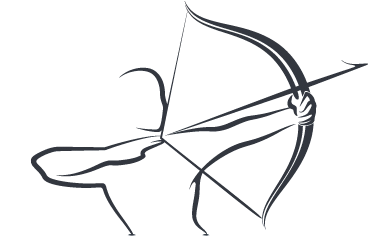Education has been a commodity and in recent years, we have seen it transformed into a larger business than any other service sector. Billions are going to schools and getting conditioned for the future. One wrong is to prepare a generation for the future which is unknown. Still, we love this obsession of the FUTURE.
The Indian government has invited people to share their inputs for the National Education Policy which is going to be drafted and launched in the coming years. The policy draft, as shared by the government by their MyGov platform seems to talk on a wide spectrum of possibilities and commitments. What it is going to miss is the pivotal problem faced by the educational structure of the country and that is about Rationality in Learning. This rationality is missing from teachers' training and selection, from the curriculum and policies. It is not even present when then industry comes to hire the students. Everybody seems to have taken the notions of 'pass the buck to someone' and nowhere we see a remedy to all this.
The NEP talks of professional transformation and has a vast scope of suggestions. The portal asks separately for Schools, HigerEd, Additional Key Focus Areas and Transforming Education questions.
In the School domain, it asks:
- Early Childhood Care and Education: The Foundation of Learning
- Foundational Literacy and Numeracy
- Reintegrating Dropouts and Ensuring Universal Access to Education
- Curriculum and Pedagogy in Schools
- Teachers
- Equitable and Inclusive Education
- Efficient Resourcing and Effective Governance through School Complexes
In Higher Education, the suggestions are sought about:
- Quality Universities and Colleges: A New and Forward-Looking Vision for India’s Higher Education System
- Institutional Restructuring and Consolidation
- Towards a More Liberal Education
- Optimal Learning Environments and Support for Students
- Energised, Engaged and Capable Faculty
- National Research Foundation
- Teacher Education
- Professional Education
- Empowered Governance and Effective Leadership for Higher Education Institutions
- Transforming the Regulatory System
The third category asks for Additional Key Focus Areas:
- Technology in Education
- Vocational Education
- Adult Education
- Promotion of Indian Languages
The idea that education must result in the ‘full development of the human personality’ continued to be reflected in influential reports such as that entitled ‘Learning: The Treasure Within’, which the International Commission on Education for the Twenty-first Century chaired by Jacques Delors, submitted to UNESCO in 1996. The Report argued that education throughout life was based on four pillars: i) Learning to know - acquiring a body of knowledge and learning how to learn, so as to benefit from the opportunities education provides throughout life; ii) Learning to do - acquiring not only an occupational skill but also the competence to deal with many situations and work in teams, and a package of skills that enables one to deal with the various challenges of working life; iii) Learning to live together - developing an understanding of other people and an appreciation of interdependence in a spirit of respect for the values of pluralism, mutual understanding and peace; and iv) Learning to be - developing one’s personality and being able to act with autonomy, judgement and personal responsibility, while ensuring that education does not disregard any aspect of the potential of a person: memory, reasoning, aesthetic sense, physical capacities and communication skills.
The suggestions that we give to this policy via MyGov platform shall surely help the government the sense the opinion of the masses who are actually concerned about education; they do not just brag about the education system.
Content & Photo Source: NEP on MyGov







